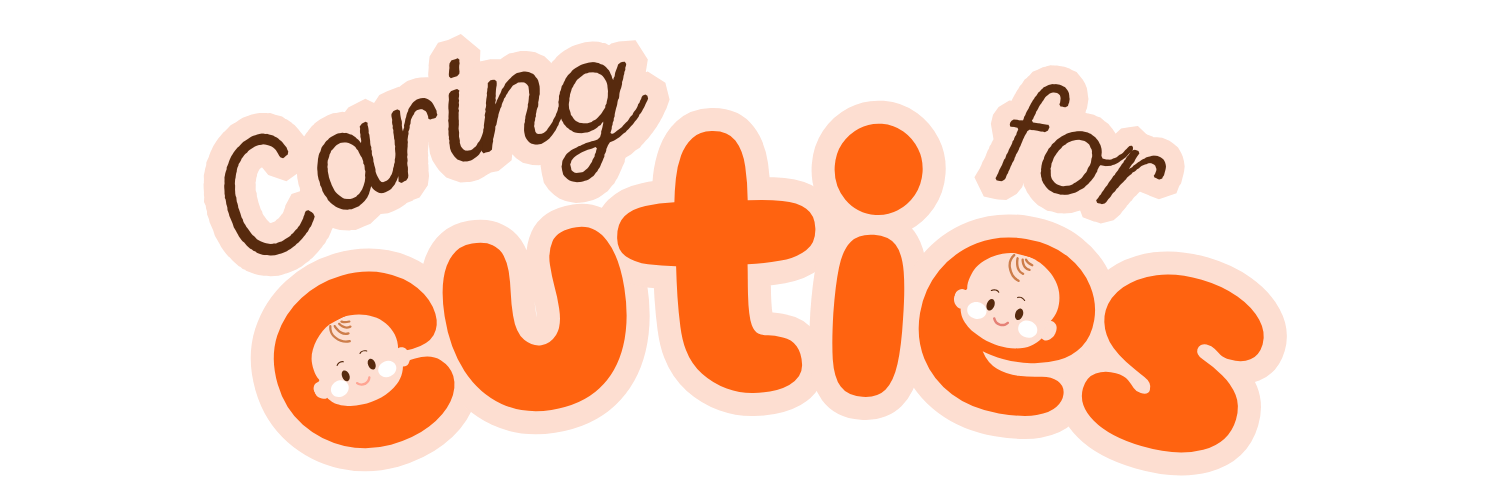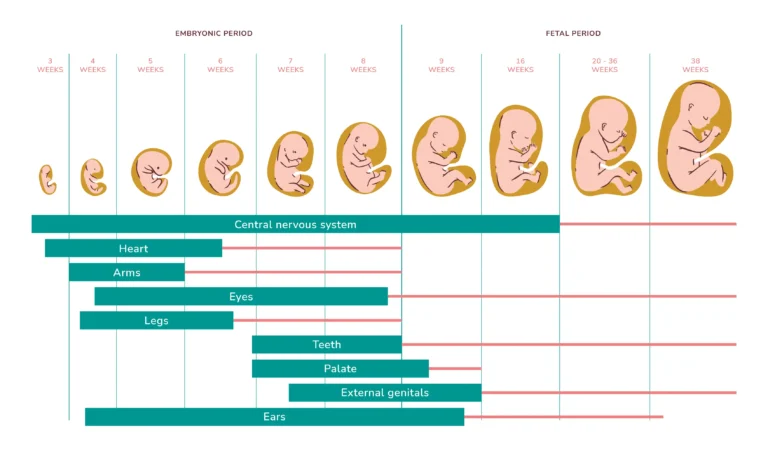Pregnancy is a special journey filled with hope and growth. It’s a time of change and excitement for expectant parents. Understanding prenatal care is key to a healthy pregnancy.
The way we experience pregnancy today is different. It combines old wisdom with new ways to help parents. Modern parenting during pregnancy means more than just doctor visits. It’s about getting ready for a new life in every way.
Today’s parents have challenges that others didn’t. They use new medical tools and tracking devices. These help make the journey to welcoming a baby more informed and confident.
Key Takeaways
- Embrace a holistic approach to prenatal care
- Leverage modern technological resources
- Prioritize physical and mental well-being
- Build a strong support network
- Stay up-to-date with the latest in pregnancy care
Understanding Prenatal Care Essentials
Pregnancy needs a detailed plan for prenatal care. Expecting parents should have a clear guide for health and growth. Knowing the key parts of pregnancy care is vital for a healthy path.
Early Pregnancy Healthcare Routines
Starting strong prenatal care in the first trimester is key. Important steps include:
- Scheduling an initial detailed medical check-up
- Creating a detailed medical history profile
- Understanding genetic screening options
- Developing a personalized pregnancy tracking plan
Importance of Prenatal Vitamins
Prenatal vitamins are vital for fetal growth. Nutritional supplements can help prevent developmental issues and keep both mom and baby healthy.
- Folic acid supports neural tube development
- Iron prevents anemia and supports blood cell production
- Calcium strengthens bone development
- Vitamin D enhances immune system function
Regular Medical Check-ups Schedule
Regular medical visits are essential for prenatal care. They help track the baby’s growth and mom’s health.
- First trimester: Every 4-6 weeks
- Second trimester: Every 4 weeks
- Third trimester: Every 2-3 weeks
- Final month: Weekly consultations
Proactive healthcare management is the cornerstone of a healthy pregnancy experience.
Modern Parenting During Pregnancy

Modern parenting during pregnancy has changed a lot. It now combines technology, work-life balance, and new support systems. Expectant parents face a complex world of work and family planning with new tools and resources.
Technology is key in managing pregnancy today. Digital tools have changed how parents track their health, talk to doctors, and find support. Some important tech tools include:
- Pregnancy tracking apps
- Virtual medical consultations
- Online support communities
- Remote health monitoring systems
Work-life balance is very important during pregnancy. Studies show that nearly 50% of working women feel more stressed than 40% of men. The workplace is starting to offer more flexible options to help expecting parents.
Successful modern parenting requires strategic planning, technological integration, and mutual support between partners.
Remote work has made managing pregnancy easier. Families can share household duties and keep up with work. Services like meal delivery apps and childcare platforms help families adjust to having a new baby.
The key to modern parenting during pregnancy is being adaptable, using technology, and creating supportive environments. These environments should focus on both career and family well-being.
Creating a Healthy Pregnancy Environment
Preparing a nurturing space during pregnancy is more than just decorating. It’s about creating a place that supports both physical and mental health for expectant mothers.
Safe Home Modifications
Making your home safe is key for a healthy pregnancy. Important changes include:
- Install smoke and carbon monoxide detectors
- Secure furniture to prevent tipping
- Cover electrical outlets
- Set water heater below 125 degrees Fahrenheit
- Remove hazards from living areas
Workplace Adaptations
A comfortable work environment is vital for mental health. Expectant mothers should:
- Talk to their employers about their needs
- Ask for ergonomic furniture
- Look into flexible work options
- Take regular breaks
- Focus on personal comfort
Stress-Free Living Spaces
Design your home to help you relax and reduce stress. Think about creating areas for:
| Relaxation Area | Purpose |
|---|---|
| Meditation Corner | Mindfulness practice |
| Comfortable Reading Nook | Quiet reflection |
| Soft Lighting Zone | Emotional calm |
By making these changes, expectant mothers can create a supportive space. This space nurtures both physical health and emotional well-being during pregnancy.
Nutrition and Exercise Guidelines
Pregnancy nutrition is key for the baby’s growth and the mom’s health. Moms-to-be need a diet full of nutrients for their baby’s needs.
Good nutrition means eating a variety of foods that are good for both mom and baby. It’s important to pay attention to certain foods:
- Increase intake of folic acid to support neural tube development
- Consume adequate protein for fetal growth
- Include calcium-rich foods for bone development
- Prioritize iron-rich foods to prevent anemia
“A well-planned diet is the foundation of a healthy pregnancy” – American Pregnancy Association
Exercise is good for the baby when done safely. Doctors suggest moderate activities to keep fit without too much strain. Good exercises include:
- Walking
- Swimming
- Prenatal yoga
- Low-impact aerobics
Always talk to your doctor before starting any workout. Everyone’s fitness level and pregnancy are different. Getting advice tailored to you is important for safe exercise.
Knowing how nutrition and exercise work together is key. Eating well and staying active support both mom and baby’s health.
Mental Health and Emotional Well-being
Pregnancy is a time of great joy and emotional challenges. It’s important to get mental health support during this time. This helps expectant parents deal with the physical and emotional changes they face.
Keeping your emotional well-being in check is key to a healthy pregnancy. Spotting and tackling mental health issues early can avoid long-term problems for both mom and baby.
Managing Pregnancy Anxiety
Pregnancy anxiety is common for many expecting parents. Here are some ways to handle it:
- Try daily mindfulness meditation
- Talk openly with your healthcare team
- Join prenatal support groups
- Stick to a regular sleep schedule
“Your mental health matters as much as your physical health during pregnancy.” – Dr. Emily Richardson, Perinatal Psychologist
Building Support Systems
Having a strong support network is vital for balancing work and life during pregnancy. Reach out to partners, family, and friends for emotional and practical help.
- Set up regular check-ins with loved ones
- Think about getting professional counseling
- Connect with other expecting parents
Self-Care Practices
Self-care is essential for mental health during pregnancy. Simple practices can help reduce stress and build emotional strength.
- Try gentle prenatal yoga
- Plan meals that focus on nutrition
- Do light exercise regularly
- Write down your feelings in a journal
Remember, asking for help is a sign of strength, not weakness. Your mental health affects your pregnancy and future parenting.
Technology and Pregnancy Tracking
![]()
Modern parenting during pregnancy has been changed by new technology. These tools help expectant parents track their health and baby’s growth with great detail. Digital tools have made prenatal care much better than it was just a few years ago.
Pregnancy tracking apps give amazing insights into fetal growth and mom’s health. These apps have cool features like:
- Weekly developmental milestones
- Personalized health recommendations
- Contraction and kick counting
- Nutrition and exercise guidance
Wearable devices have also changed prenatal care. They can track vital signs, monitor activity, and spot health risks. Continuous heart rate monitoring and sleep pattern analysis give moms real-time health data.
Telemedicine is now a big part of pregnancy healthcare. It lets pregnant people talk to doctors online. This is great for those who can’t travel far or live in remote areas.
Key benefits of technology in pregnancy tracking include:
- Enhanced health monitoring
- Increased patient engagement
- Improved communication with healthcare providers
- Personalized pregnancy experience
Even with all the tech benefits, doctors say it’s important to balance digital tools with in-person care. Regular visits to the doctor are key for a healthy pregnancy.
Preparing for Co-Parenting Responsibilities
Co-parenting during pregnancy needs careful planning and clear talk. Parents-to-be must work together. They should support their growing family and their own needs.
Good co-parenting starts with understanding and shared duties. This makes a safe space for the child. It also lowers the chance of fights.
Communication Strategies for Partners
Talking well is key to co-parenting. Here are some tips:
- Set up regular talks about pregnancy and parenting plans
- Listen well and show you care
- Make a place where you can share worries and feelings
- Use I statements to share feelings without blaming
Dividing Parental Tasks
Sharing duties during pregnancy is important. Here’s how to do it:
- Make a chart of household tasks
- Know each other’s good points and likes
- Be ready to change roles when needed
- Thank each other for what you do
Future Planning Together
Planning ahead helps partners agree on parenting. Talk about important things like:
- How to take care of the baby
- Money matters
- Changing jobs
- How to raise the child
Remember, successful co-parenting is a journey of partnership, understanding, and continuous adaptation.
By working hard on co-parenting, expectant parents can make a caring place. This supports their child’s growth and their bond.
Safety Considerations and Lifestyle Adjustments
Getting prenatal care means paying close attention to safety and making lifestyle changes. Expectant mothers need to make smart choices to keep themselves and their baby safe.
Important safety tips during pregnancy include:
- Avoiding harmful substances
- Managing environmental risks
- Making smart food choices
- Knowing which medicines are safe
Good nutrition is key during pregnancy. Some foods are not safe for you or your baby. Avoid raw seafood, unpasteurized dairy, and high-mercury fish.
“Your body is now a sanctuary for your developing baby – every choice matters.” – Dr. Emily Rodriguez, Maternal Health Specialist
Work and home environments need careful checks. Pregnant women should:
- Stay away from harmful chemicals
- Ask for ergonomic work changes
- Keep a calm and peaceful home
- Do gentle exercises regularly
Being emotionally flexible is important during this time. Having a supportive network and talking openly with doctors can help with any worries about lifestyle changes.
Remember, each pregnancy is unique. Always talk to your healthcare provider for advice that fits your needs.
Building a Pregnancy Support Network
Having a strong support network during pregnancy is key for mental health and navigating the journey of expecting parents. Pregnancy can be tough emotionally. A good support system is vital for both physical and mental health.
Good co-parenting starts with a solid support network. This network should include:
- Partner and immediate family members
- Close friends and extended family
- Healthcare professionals
- Prenatal support groups
- Mental health counselors for pregnancy
Talking openly is important in building this network. Discussing emotional needs, expectations, and challenges helps create a supportive space. Expectant parents should share their feelings and ask for help when needed.
“A strong support network doesn’t just happen—it’s intentionally cultivated with care, communication, and mutual understanding.” – Pregnancy Wellness Institute
Support groups, online and in-person, are great for connecting with others. They offer emotional support, practical tips, and a sense of community. Many hospitals and community centers have prenatal classes for networking and learning.
Professional mental health support is also very helpful during pregnancy. Therapists focused on perinatal mental health can help with anxiety, stress, and emotional changes of becoming a parent.
- Ask healthcare providers for recommendations
- Look into telehealth for convenience
- Choose someone who fits your needs
Building a support network is an ongoing effort. Stay open, flexible, and ready to adjust your support as your pregnancy evolves.
Work-Life Balance During Pregnancy
Expectant parents face unique challenges in balancing work and life during pregnancy. Modern parenting demands smart strategies to handle work duties while focusing on health and family readiness.
Career Management Strategies
Starting with proactive career management is key to work-life balance. Expectant mothers should take the following steps:
- Communicate openly with employers about pregnancy needs
- Develop a detailed maternity leave plan
- Look into flexible work options
- Know your rights and protections at work
Effective Time Management
Pregnancy requires careful time planning. Smart time management can lower stress and boost well-being:
- Focus on the most important tasks
- Make a realistic daily schedule
- Leave room for unexpected needs
- Use digital tools for staying organized
Setting Professional and Personal Boundaries
It’s vital to set clear boundaries for work-life balance during pregnancy. This means setting realistic goals with employers and personal networks.
| Boundary Type | Recommended Approach |
|---|---|
| Work Boundaries | Limit overtime, delegate tasks, communicate limitations |
| Personal Boundaries | Schedule regular rest, practice self-care, seek support |
| Health Boundaries | Make prenatal appointments a priority, manage stress |
Modern parenting during pregnancy needs flexibility and planning. By using these strategies, expectant parents can manage work while growing their family.
Conclusion
Modern parenting during pregnancy is a big change. It mixes old wisdom with new healthcare ways. This journey is not just about getting ready physically. It also includes mental health, work changes, and detailed prenatal care for mom and baby.
Today’s prenatal care needs a wide view. Expectant parents have more help than ever. They can make smart choices with new medical tools and work policies. This shows a big push to care for the whole pregnancy journey.
Technology and support groups are key in modern pregnancy care. Online tools, mental health help, and flexible jobs help parents through this big change. By focusing on overall health, parents can face pregnancy with confidence and strength.
The pregnancy journey is deeply personal and requires flexibility, self-care, and a strong support network. As healthcare and society grow, parents can make their own, all-around prenatal care plans. These plans focus on both physical and emotional health.
FAQ
How can I effectively track my pregnancy using modern technology?
You can track your pregnancy with apps like Ovia or Glow. They give info on fetal growth and track symptoms. Wearable devices also monitor health metrics, keeping you updated in real-time.
What are the most important prenatal vitamins during pregnancy?
Folic acid, iron, calcium, and vitamin D are key. A prenatal vitamin from your doctor will have these to help your baby grow and keep you healthy.
How can partners effectively support each other during pregnancy?
Good support means talking openly, sharing tasks, and going to doctor’s visits together. Taking prenatal classes and making a supportive home is also important. Emotional support and listening are key.
What workplace adaptations should I consider during pregnancy?
Ask for ergonomic changes, flexible hours, and more breaks. Talk clearly with your boss about what you need. Many companies help expecting parents.
How can I manage work-life balance during pregnancy?
Take care of yourself, set work and personal life boundaries, and manage your time well. Talk to your employer about your needs and use flexible work options. Managing stress and being realistic is key.
What are safe exercise guidelines during pregnancy?
Safe exercises include walking, swimming, prenatal yoga, and cycling. Always check with your doctor, listen to your body, and avoid risky activities. Adjust the intensity as your pregnancy advances.
How can I manage pregnancy-related anxiety?
Build a strong support network, practice mindfulness, and consider counseling. Join groups, talk openly with your partner, and remember some anxiety is normal.
What nutrition guidelines should I follow during pregnancy?
Eat a balanced diet with fruits, veggies, lean proteins, and whole grains. Avoid raw foods, limit caffeine, and drink plenty of water. Get personalized advice from a nutritionist or your doctor.
How can technology help with prenatal care?
Use telemedicine, apps, virtual classes, and digital tools for care. They offer easy access to health resources for expectant parents.
What home modifications are recommended for pregnancy?
Make your home ergonomic, well-lit, and safe. Create a cozy area for rest and self-care. Think about baby-proofing your home too.





